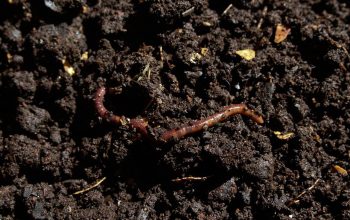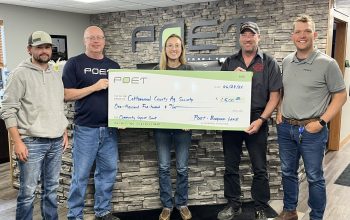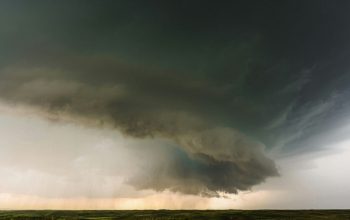My recollection of the first day of a new age in American history
I was riding in the passenger seat of my Father's van on the way to help him work up an estimate for a potential new customer. After a storied career in "food consulting" (which, depending on the gig, meant inventing new recipes, new machines and systems to prepare them at scale, and devising the plans by which to sell them "like hotcakes" in grocery stores and restaurants) he had found retirement not to his liking. So then he had founded his next entrepreneurial venture: General House Services, a general contractorship. And he had put his sons to work there, as the whole thing was really just a vehicle for him to keep his boys near and teach them more of what he knew while he still could. So I was along for the ride that morning, in more ways than one.
Uncharacteristically for my Dad taking a drive of any decent length, his music wasn't playing. With him it was as often the Moody Blues playing off a cassette as anything, and if not that Elvis Presley which he'd learned to love from my Mother, or perhaps some Linda Rondstadt. Occasionally, he'd let me play some of my music when it was just him and I, but only from select artists. I could play Credence Clear Water Revival or Rush or even some Van Halen. Maybe some David Bowie. Tears for Fears he'd even ask for. ZZ Top as well. But most of the time if I was riding with Dad, it was Moody Blues. That morning, it was a strange, moody silence.
And then the phone rang. A cell phone was kind of a new thing to be carrying around for me back then. But I had one, since I was now working in construction. A Nokia with oval backlit buttons and a tiny green and black screen, and it rang, playing its 8 bit version of a ringer. I answered. It was my Mother. She immediately asked if I was OK, and the tone of her voice told me right away that something was horribly wrong. I asked what it was.
"Are you driving? Can you look up? Can you see the sky? Are there planes in the sky?" She asked each question in rapid, urgent succession.
"Yes, I'm with Dad, we're in Fitchburg, just past the beltline," I answered, describing our position just barely outside the technical confines of the western edge of Madison, Wisconsin. "We're going to bid a job."
"Can you see if there are planes in the sky," she asked again, urgently. As if I'd just told her everything but what she needed to know.
That seemed mighty odd to me, but I looked. I released my seat belt, and craned my neck, leaning forward, to peer up through the top edge of the windshield. "It's the sky," I answered, "I don't see planes. Why would I?"
"Pull over somewhere," she said, "the country is under attack."
I repeated her words back at her, but as a question. "The country is under attack?"
"Yes," she said, "they've hijacked planes. They're using them like missiles. They're crashing them into buildings. Let me talk to your Father."
I handed the phone over to my Dad. To his ex-wife he said "Good morning, Cathy." Then his face fell, before tightening, and hardening to stone. A former Navy man, his strong calloused hands tightened on the steering wheel hard enough I presumed they'd leave a mark for good. "OK, we will," is all he said, and gave the phone back to me.
He flipped on the radio. It was playing music so he did something he never did within range of his favorite preset radio stations, he started twisting the tuner dial. Rolling through static and every genre of music. As he did, he changed lanes, moving to the right, toward the many businesses lining the four lane roadway. He pulled us off into, as it happened, one of my favorite gas stations in Fitchburg. A Speedway that had fresh donuts that time of the morning, along with a decent coffee they kept fresh. And sold a store brand cherry cola that I bought by the 12 pack back then, when I had the chance, because it was tasty and cheap and held its fizz well.
Inside, my father told me to get us both donuts, and coffee. He walked to the Manager, and leaned in, speaking into his ear. The man looked at him incredulously, but nodded, and came out from behind the counter, motioning with his hand for my father to follow him. They went through a door marked "employees only" together, as I filled up Dad's massive coffee cup that held almost a full pot, which came from a competing gas station chain.
This was in the days when news really only came from actual journalists, and was found on television, the radio, and in print. It still wasn't on the phone in your pocket, and wasn't from just whoever, or some foreign propaganda mill and their social media and partisan media dupes. And my father had found such a source, a television, a small black and white one with a telescoping antenna and a tiny screen from the manager's office. Together, the two men cleared a space for it on the front counter of the store, plugged it in, tuned it to a local news broadcast, and fiddled with the antenna until they brought in a clear picture.
"Everyone," the store Manager called out loudly to the nine or ten patrons in the store, "gather around here. Something is happening. Something bad." A moment later, he got on the loudspeaker to people pumping gas outside the store, and said essentially the same thing. Calling them in. "Something is happening. Something bad."
I pulled in and stood shoulder to shoulder with strangers who were my countrymen, my fellow Americans. Peering at the small black and white screen, listening to the sound through the tinny speakers. Seeing and hearing that first plane, a Boeing 767 jetliner, smash into the side of the World Trade Center's North Tower over and over. Suddenly the fact that the people standing beside me were Americans mattered. A lot.
After a few minutes watching this, my father took hold of me by the elbow, pulling my attention from the tiny screen. "Come on," he said, "we still have a job to do." We marched through the parking lot to his van, and climbed in. Grimly, we chewed our donuts in silence, unable to take any joy from it. Soon enough, we pulled into a driveway of a nice ranch style home in the suburbs.
We gathered up our measuring tools, and our quotation forms, and our clipboards, pens, pencils, and whatever else. We then walked to the door from the driveway, along the narrow cement path. The grass along its edges neatly trimmed. And Dad knocked on the door.
The man who answered was a ball of nerves. He regarded us, the strangers at his door, with obvious fear written on his face. But he let us into his home. My Dad tried to put him at ease. We'll be quick, he promised, and set right to work making measurements.
I tried to put the man at ease as well. I noticed, on the top of the wooden console television in his living room, a portrait of a young woman in a graduate's cap and gown, smiling through the UV shielded glass of the frame. I asked if the photo was from college or high school graduation. It was from college, he told me. She was a doctor. She was out of the country. She did very well in school, and athletics. He was very proud of her. She was very "all American."
All of which he said with conviction and pride, but over an undercurrent of fear, and I had a sense that he was offering bonafides as to why he and his family belonged here. This man who was clearly a well off, decent contributing member of society who kept a clean, nicely furnished suburban home, and was at the moment terrified of the two white men in it. Because he was of arab descent, and because he had already realized what we all were soon to experience. It was a whole new America, starting that morning, 21 years ago this week. And a terrible retribution was coming.
Finally, after a long, harrowing day that was deeply wounding to the soul, I went to bed. After watching the second tower struck, and watching both towers fall. After watching the streets fill with dust and ash, a toxic mix of incinerated and pulverized electronics, building materials, and thousands of human beings. After watching people walk about in the surrealistic hellscape that followed, coated in it. After seeing the spires of twisted metal pointing skyward that was, just earlier that day, the siding of an iconic American superstructure. After seeing the smashed fire trucks. After seeing the hole pierced into the Pentagon. And as heroism and tragedy played out on the eastern edge of the nation in whose center I was ensconced, playing across the back of my eyelids even after the television was off, I lay in bed, trying in futility to sleep.
But that was a day of awakening, and sleep does not easily follow such a day. It was the start of the 21st century, and it was a turning point which now, 21 years later, still looms large in the memories of those of us who lived through it, and shapes the nation even for those who had not yet been born.







